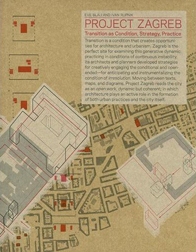Project Zagreb: Transition as Condition, Strategy, Practice
 Zagreb is the perfect site for examining the generative dynamic of transition: currently preparing for Croatia’s entry into the European Union and negotiating the rocky shoals of the “transition economy,” but also a city in which political and economic transition has been the status quo for the last century and a half. Practicing in conditions of continuous instability, architects and planners in 20th century Zagreb developed new strategies of urbanism and architecture for creatively engaging the transitional, conditional, mutable, and open-ended–for absorbing, accommodating, anticipating and instrumentalizing the condition of irresolution.
Zagreb is the perfect site for examining the generative dynamic of transition: currently preparing for Croatia’s entry into the European Union and negotiating the rocky shoals of the “transition economy,” but also a city in which political and economic transition has been the status quo for the last century and a half. Practicing in conditions of continuous instability, architects and planners in 20th century Zagreb developed new strategies of urbanism and architecture for creatively engaging the transitional, conditional, mutable, and open-ended–for absorbing, accommodating, anticipating and instrumentalizing the condition of irresolution.
This book examines how these strategies, once stabilized in built form, become available to practice, generating new techniques for achieving previously unforeseen results. In this way the city itself becomes an actor in the transformation of architectural and urban practices. Transition thus emerges as a condition that not only foregrounds practice and privileges design over planning, but that also enables architecture to play an active, performative role in the formation of the city itself. Based on new mapping and diagrams, along with many original texts and photos which have never been published, the book features contributions by Hrvoje Njiric, Helena Paver Njiric, Charles S. Maier, Vedran Mimica, Vladimir Mattioni, Ivan Rogic, Fedja Vukic, Snjeska Knezevic, Aleksander Laslo and others. This study was initiated as a seminar at Harvard University Graduate School of Design.
Actar, Barcelona and New York